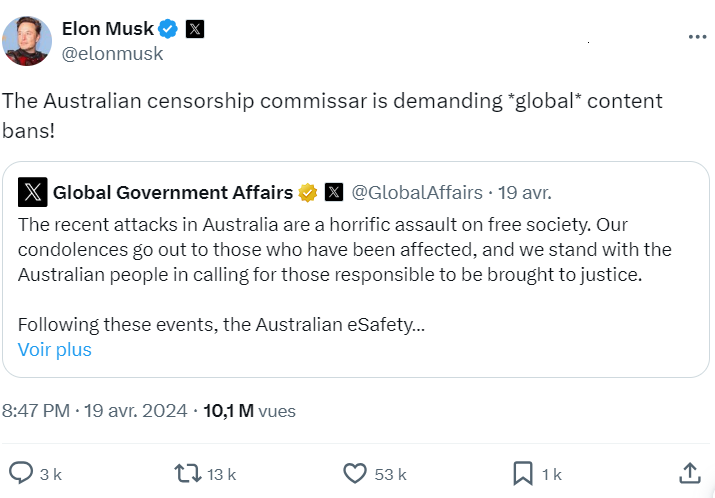In Defense of eSafety: Upholding Democratic Processes in the Digital Age

As cybersecurity professionals, we at the Cybersecurity Advisors Network (CyAN) are acutely aware of the critical role that technology plays in shaping our society. As our primary focus is on information security, data protection as well as Trust & Safety, we recognise the broader implications of technology-related issues that impact public safety, democracy, and the rule of law.
Recently, there has been significant attention on the legal battle between Elon Musk and the Australian government over eSafety regulations. This case (see screenshot above) has sparked important conversations about the responsibilities of tech platforms in ensuring online safety and the limits of freedom of expression in the digital age.
At CyAN, we stand in support of the Australian government’s position on eSafety, particularly in light of recent events involving X (formerly known as Twitter). The decision to issue a removal notice may be viewed by some as censorship, but it is important to consider the broader context:
- The removal notice is not a violation of fundamental rights but rather the result of a transparent democratic process led by a legitimately appointed representative of a democratically elected government.
- X’s inconsistent approach to content moderation (as an example, read the recent report of FRA, the EU Agency for fundamental rights “Online content moderation – Current challenges in detecting hate speech) has raised concerns about its commitment to fostering a safe online environment. Inconsistency in content moderation, whether unintentional or deliberate, enables individuals and groups to insult, threaten and harm their targets, on the grounds of sex (typically against women and LGBT+), race, ethnic origin and/or religion, which undermines our digital environment..
- Freedom of expression, even in the US, is not absolute. Legal precedents like Brandenburg v. Ohio in 1969 demonstrate that there are limits to what constitutes protected speech.
- The European Union has developed a new set of regulations that will have a major impact on how platforms moderate content, with the adoption of Digital Services Act (DSA) in November 2022 and the development of trusted flaggers (see also INACH for specific regulations against hate)
- Other liberal democracies, such as Germany, have successfully reconciled restrictions on certain types of content with individual liberties and democracy, as evidenced by laws like StGB § 86a.
- Corporate attacks on legitimate officials and structures, under the guise of free speech, are unacceptable. It is essential to distinguish between legitimate criticism and baseless attacks that undermine democratic processes.
- Unrestricted social media content has had deleterious impacts on society, from spreading extremist ideologies to undermining electoral processes and fostering hate against marginalised communities.
We also express our full support for Australian eSafety Commissioner Julie Inman Grant, whose steadfast commitment to protecting online safety and combating harmful content deserves recognition. Her decision to issue the removal notice demonstrates leadership and dedication to upholding the safety and well-being of all individuals online.
It’s crucial to clarify that our support for eSafety regulations is not a commentary on freedom of expression itself. Rather, we recognise that different democracies have different approaches to limiting potentially harmful content online. When these rules are unambiguous, transparent, consistently enforced, and subject to democratic processes and judicial review, they serve to enhance safety and security for all individuals online.
Attacking legitimate eSafety processes as “censorship” or “propaganda” is not only disingenuous but also detrimental to the public good. By upholding democratic principles and promoting responsible online behaviour, we can build a safer and more inclusive digital environment for everyone.
As cybersecurity professionals, we have a duty to advocate for policies and practices that prioritise the safety and security of individuals online. We urge all stakeholders, including tech companies, governments, and civil society, to work together to address the complex challenges of online safety and ensure a more resilient digital future.